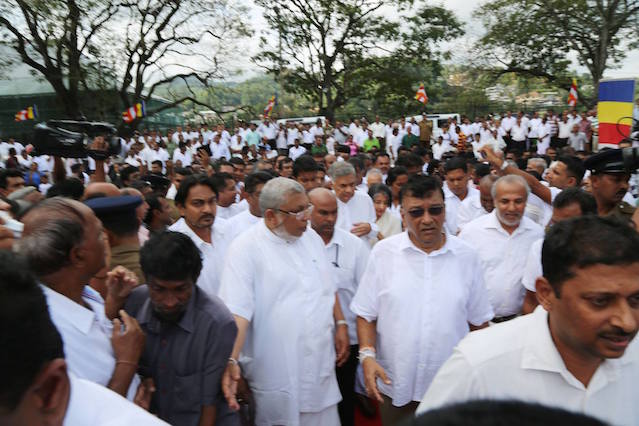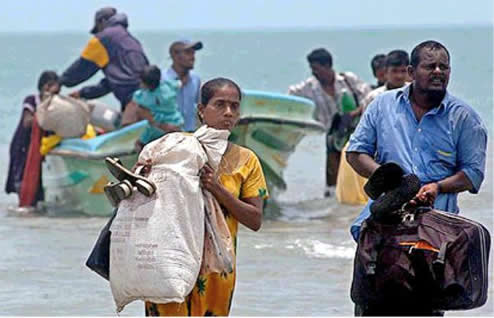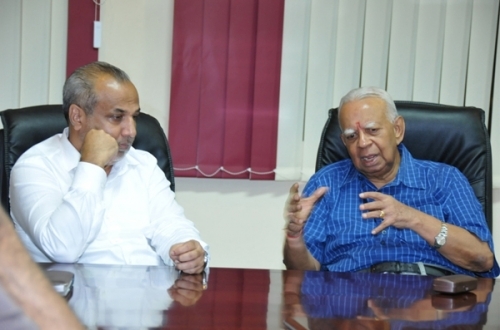Amphibians are at home in two or more places but are native to none of them. This has been the unfortunate saga of the SLMC
since its emergence as an independent political party in the 1990s.
When it originated the party leaders proclaimed that they would be the
sole representatives of the Muslim community in Sri Lanka and that they
would live and die for that community. But the reality was totally
different. In trying win parliamentary seats, ministerial positions and
wealth seeking opportunities the SLMC stalwarts were willing to
sacrifice the interests of the community for personal gain. Even when
they bargained for a coalition partnership the chips they bargained with
were not benefits to the community but the number of ministries that
the leaders would get and the power of such ministries. This was so
blatantly demonstrated at the last general elections.
Which political party in the world, can someone point out to me, did
sacrifice its own identity, merge completely with another, won
parliamentary seats and ministerial positions, and then did go on to
claim that the original party was still a force to reckon with and a
fortress for its native vote bank? This is exactly what the SLMC and its
parvenus are claiming in the Eastern Province. This braggadocio is
risible at best and mendacious at worst.
When
the Uva Provincial Council elections were held during the waning months
of the Rajapaksa regime SLMC contested to test the waters. The rout it
received from the Muslims of Uva signalled to the leaders that the same
fate would be repeated if SLMC were to contest a general election under
its own banner. All SLMC political aspirants except one from Eravur
cowardly deserted their own party, obtained tickets under the UNP and
entered the parliament through the UNP door. Logically, morally and in
terms of institutional structure therefore, that sole winner from
Eravur, Ali Zahir Mowlana, should automatically become the leader of the
SLMC rump. It is to avoid that eventuality SLMC leadership has now
started beating the drums. I have called earlier for the dissolution of
the SLMC. The party’s financial and real estate assets should be handed
over to another charitable Muslim organization or to the Waqf. This may
not happen that easily because of vested interests within SLMC.
UNP’s own strength in the national government is so vulnerable that
its leader has to tolerate these amphibians and their braggadocio. If
the government were to collapse because of internal fighting between the
UNP and the SLFP faction under MS – which possibility cannot be
dismissed so easily – and if the President were to call for another
General Election the SLMC amphibians will be looking for a an
alternative abode to settle; and who knows it may be even BBS if the winds of electoral fortune were to blow in its favour.
If there is one lesson that the SLMC should learn from the last
election, it is this: You can fool some people all the time, all the
people some time but not all the people all the time.
The national parties including the JVP should become totally national
in their structure, composition and policies in order to leave the
ethnic parties like the SLMC out in the wilderness. As a first step
towards that the Tamil problem should be addressed with sincerity and
settled.
For all intents and purposes the SLMC is dead. It is time to say amen (amin) to the requiem (talqin).
*Dr. Ameer Ali, School of Management and Governance, Murdoch University
More reading of Dr. Ameer Ali, click here>>>
Home Sri Lanka Think Tank-UK (Main Link)



